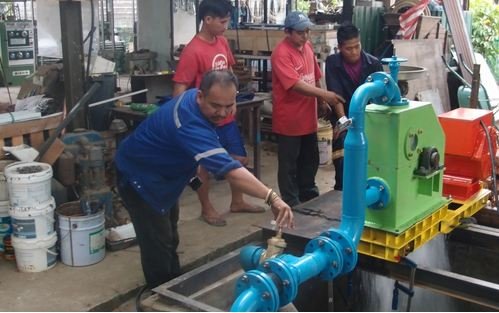DatacenterDynamics’ (DCD) executives recently donated airmiles to fly two volunteers out to Borneo to help design and build micro-hydropower systems for local communities.
Their work for local communities has been carried as part of Engineers Without Borders, a charity supported by DCD.
CTO Stephen Worn’s airmiles sent civil engineer Liam Robertson and chemical engineer Luke Morris to Borneo last October.
The pair are working on a project to bring renewable energy to communities - in this case on micro-hydropower projects in three roadless, isolated villages, all of which have no direct access to electricity except intermittently from generators.
Since being in Borneo they have carried out feasibility studies on three villages situated down the Ulu Papar River and have built a test rig for a micro-hydropower system.
Robertson and Morris also provide training to a group of local technicians on how renewable energy works.
They travel via the river to each village and stay in local homes or community centers.
“We usually spend two or three days in the villages, they’re roughly two to three hours apart. We trek along the Ulu Papar River so the weather really judges how long we stay in each village. We can’t really move villages if the river is flooded,” Morris said.
Travelling up the Ulu Papar River
Last November the pair attended the Heart of Borneo Conference in Sabah and presented a water/electric hybrid solution to an audience of 800 delegates, including the chief minister of Sabah.
During this year’s Earth Hour, Robertson and Morris powered a renewable energy light up sign with the Earth Hour 60+ logo.
Earth Hour is a worldwide project organized by the World Wildlife Foundation encouraging people to turn off their lights for an hour to show their support for the planet.
The first Earth Hour was started in Sydney, Australia in 2007 and has since grown to more than 7,000 cities and towns globally.
Earth Hour’s logo powered by renewable energy
On April 1 Morris and Robertson completed their test rig in which TONIBUNG’s homemade Pelton Turbine could be tested.
The micro-hydropower system will use water from the Ulu Papar River and flow down a steep hill through a pipe into a Pelton turbine.
The turbine will use the kinetic energy created from the rivers natural flow to rotate the turbine to create rotational energy to power the generator.
The generator will then provide developing communities with renewable energy.
EWB sends engineers to the developing world to help communities with crucial engineering projects.
It has numerous placements that run from three months to a year with projects which include teaching local technicians various engineering skills, deploying long-range wireless networks to connect schools and providing renewable energy resources.
The engineers being deployed are asked to keep blogs and to raise money for the organization while on their projects. Engineers can be deployed to locations such as India, Mexico, Sierra Leone and Malaysia.
DatacenterDynamics supports Engineers without Borders. It donated US$5 for every industry Census survey completed to its Fly An Engineer Appeal and for every survey completed.
There are three ways to donate to Engineers Without Borders:
Airmiles - If you’re a frequent flyer you can donate your airmiles to the project. Flying the engineers abroad is the organization’s biggest cost
Money - If you’re not a frequent flyer, you can donate money to fund the engineer’s travel
Time or resources - You can donate time and appropriate resources to the project
To read more on Morris’ and Robertson’s adventures and challenges while in Borneo you can read their blogs.
Morris and Robertson will be speaking at the DCD Converged event at the Aloft Hotel in Kuala Lumpur on the May 29. For more information on the event click here.

